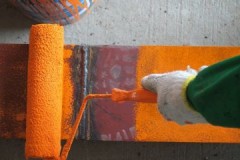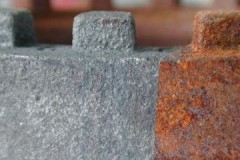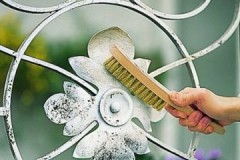Does vinegar help against rust and how to use it wisely?
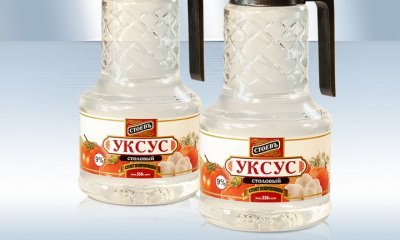 Reddish rust stains not only spoil the appearance of the product, but can also cause damage to the surface. Penetrating deep into the material, rust finally destroys it.
Reddish rust stains not only spoil the appearance of the product, but can also cause damage to the surface. Penetrating deep into the material, rust finally destroys it.
Experienced housewives and specialists of cleaning companies know many ways to remove red stains, but there is one that will help you forget about rust stains as quickly as possible - this is vinegar.
Read the article about whether vinegar removes traces of rust and how to use it against corrosion.
Content
Does acetic acid remove rusty deposits?
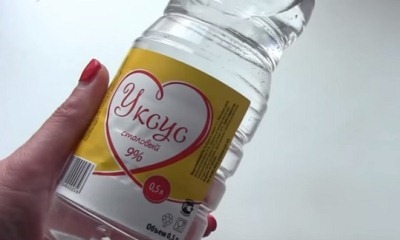 Basic, school knowledge of chemistry will help you understand why acid dissolves rust particles so quickly.
Basic, school knowledge of chemistry will help you understand why acid dissolves rust particles so quickly.
In the process of iron oxidation, a special chemical compound Fe2O3 is formed... Visually, this process manifests itself in a red bloom on various surfaces.
When interacting with acid (vinegar), iron oxide is destroyed and converted into iron salts, which can be easily removed with a sponge, brush or rag.
Acetic acid is an excellent remedy against rust stains on:
- metal,
- plastic,
- tile,
- glass.
It is not recommended to use a vinegar solution for cleaning:
- granite,
- marble,
- wooden surfaces.
Pros and cons of removal
Using vinegar to combat rust stains, you can appreciate a number of positive aspects:
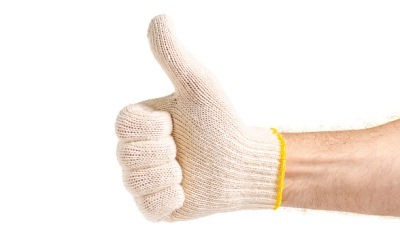 The versatility of the product (vinegar solution perfectly removes red stains from metal, plastic and ceramics).
The versatility of the product (vinegar solution perfectly removes red stains from metal, plastic and ceramics).- Availability (low cost, vinegar solution is available in any kitchen).
- Efficiency (at pH 2.5 pH, the vinegar solution dissolves stubborn stains of rust, grease and lime in a matter of minutes).
The disadvantage of using a vinegar solution against rust stains is the pungent odor.
An open window in the room will help to solve the problem of an unpleasant smell. and a few drops of your favorite essential oil, previously added to the cleaning solution.
How to apply?
Depending on the degree of dirt and the type of surfaces, several cleaning methods are used with vinegar solution.
Pure product
For minor rust spots that have just appeared, cleaning with a vinegar solution prepared in a proportion of 3 parts water and 1 part vinegar is ideal.It is enough to spray the prepared product onto the stain and wipe the surface with a soft sponge.
For metal, ceramic surfaces, the following cleaning method has proven itself excellent:
- The rusty stain is carefully cleaned with aluminum foil. To do this, it is moistened in an acidic solution and, using it as a scraper, the upper, loose layer of contamination is removed.
- After preliminary preparation, the product is immersed in a vinegar solution for a maximum of 24 hours (the duration of the immersion directly depends on the degree of spread of rust. The larger the affected area, the longer it is necessary to keep the product in vinegar).
- The already cleaned surface is taken out of the vinegar solution and wiped dry with a soft cloth.
What can be added to enhance the effect?
Strengthen the effect of vinegar against rust will help:
Soda
In the case when cleaning with pure vinegar did not help, you can achieve the desired result by preparing a new composition with the addition of baking soda.
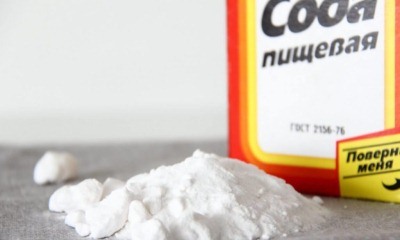 Algorithm of actions:
Algorithm of actions:
- vinegar is mixed with soda until a thick gruel (after the mixture is allowed to brew for ten minutes);
- the rust stain is rubbed with an acetic-soda agent and left for half an hour (it is convenient to carry out such actions with a toothbrush);
- then the surface is wiped dry with a clean sponge.
If necessary, all actions can be repeated again.
Lemon juice
A solution of fresh lemon juice and vinegar is the ideal aid to combat stubborn rust stains on tiles, metal or clothing.
Algorithm of actions:
- Vinegar is mixed with lemon juice in a 1: 1 ratio.
- After processing the contamination with the resulting solution, the product is left alone for a while (clothes, ceramics, plastic - for fifteen minutes, metal - for at least two hours).
- After that, the treated surface is gently wiped with a soft brush or washcloth, washed with water and dried.
Salt
The ideal solution for removing rust from enamel surfaces is a mixture of vinegar and table salt.
Algorithm of actions:
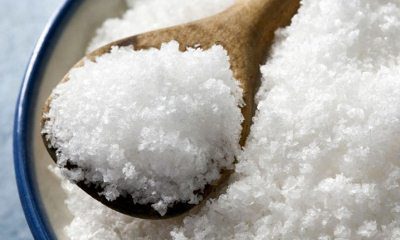 in a clean glass container, mix 100 ml of vinegar (preferably wine) and 2 tbsp. table salt;
in a clean glass container, mix 100 ml of vinegar (preferably wine) and 2 tbsp. table salt;- the resulting paste is heated in a microwave oven to 65 ° C;
- a warm agent is applied to the rust stain, gently rubbing with a soft sponge;
- an already clean surface is thoroughly rinsed with clean water.
After there is no trace of the rust stain left, the cleaned product must be wiped dry. Otherwise, there are high risks of rusty streaks appearing again.
Bleach
A cleaner that contains vinegar, baking soda, and whiteness will help you achieve a shiny whiteness of your plumbing with rust stains.
Algorithm of actions:
- Baking soda and soda ash (one part at a time) are mixed and diluted with water until a thick slurry is obtained.
- Vinegar (100 ml) is carefully poured into the resulting mass.
- The resulting paste is rubbed onto the plumbing and left for twenty minutes. To enhance the effect after vinegar-soda paste, stained surfaces can be treated with whiteness.
- Then everything is thoroughly washed off with warm water.
This product will help you achieve the desired whiteness from the very first time.
Hot iron
Do not be upset if a rusty stain appears on your favorite jeans. You can fix the problem in the following way:
- dirt on clothes is treated with vinegar;
- after twenty minutes the stain is taken up with a clean cloth and well ironed with an iron;
- clothes cleaned of red stains are sent for repeated washing.
Advice
Simple tips will speed up the process of removing red divorces:
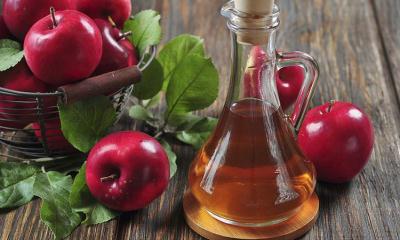 Traditionally, a 9% acetic acid solution is used in cleaning.If this is not at hand, you can apply 70%, provided that it is diluted with water (ratio 1: 1).
Traditionally, a 9% acetic acid solution is used in cleaning.If this is not at hand, you can apply 70%, provided that it is diluted with water (ratio 1: 1).- Surfaces treated with vinegar should not be actively rubbed with metal brushes and hard sponges (there are high risks of discoloration, scuffs and scratches).
- When choosing between white table vinegar and apple cider vinegar, it is best to opt for the second option to combat rust stains. He will quickly deal with the problem of yellow stains.
Working with a vinegar solution requires certain precautions.
Removal of stains is carried out only in a well-ventilated area, wearing a respirator and protective gloves... Failure to follow these recommendations may result in skin burns and irritation of the respiratory tract.
Related videos
How to clean small tools from rust with vinegar, the video will tell you:
Conclusion
A vinegar solution is a salvation for those who do not know how to get rid of rust stains. Just half an hour of time, a little patience and accuracy and the surface will once again shine with cleanliness, getting rid of unattractive red streaks for a long time.

